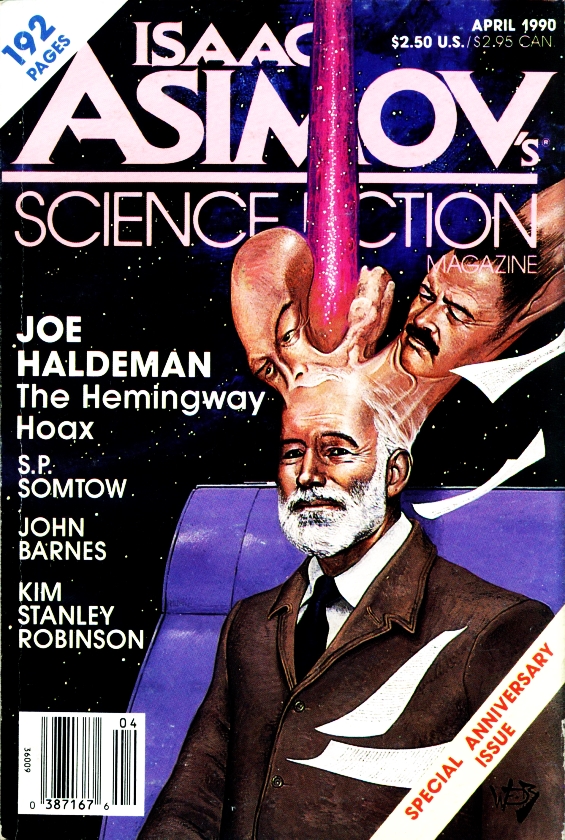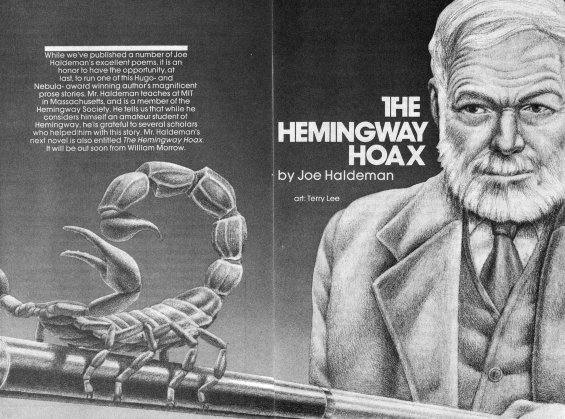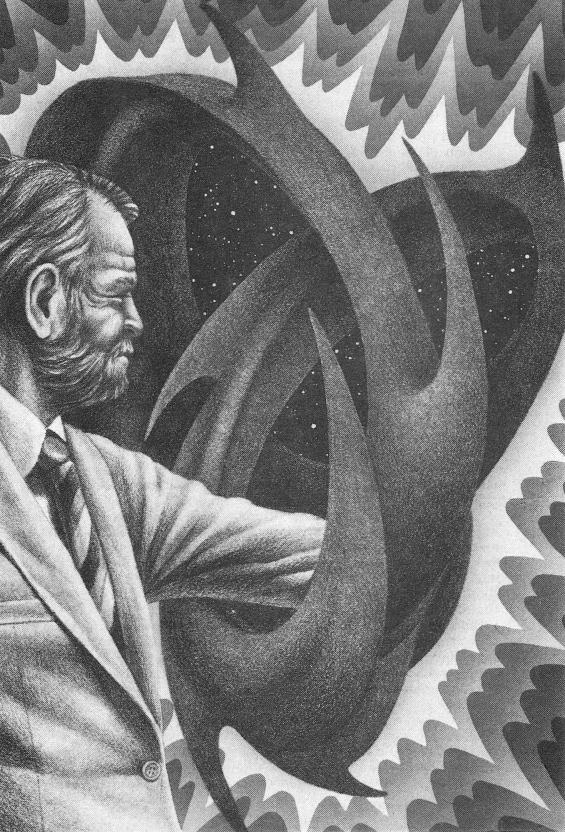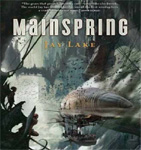
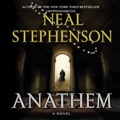 Anathem
Anathem
By Neal Stephenson; Read by Oliver Wyman, Tavia Gilbert, William Dufris, and Neal Stephenson
Audible Download – 32 hours 30 minutes [UNABRIDGED]
Publisher: Macmillan Audio
Published: 2008
Themes: / alien invasion / philosophy / religion / alternate universe
After nearly two weeks of listening to this 2009 Hugo-nominated book during nearly every moment of my free time–getting ready for work in the mornings, sitting on the bus, tossing and turning in bed–I’ve finally finished Neal Stephenson’s latest tale of metaphysical adventure. Does the book measure up to Stephenson’s earlier work? More importantly, is it fun to read?
First, some background: Anathem is set on the planet of Arbre, a world much like, and yet unlike, our own. The tale opens in the year 3690 AR (After the Reconstitution), in the Mathic Consent of Saunt Edhar. Consents are much like the medieval monasteries of our own world, except that instead of contemplating religious matters the Mathic avout research and debate matters of math, science, and philosophy. The tale is told from the perspective of Fraa Erasmas, a young avout who has now lived at the Consent for ten years. A mysterious craft appears in the skies above Arbre, which is the driving force behind the plot, since it excites consequences and conflicts first in the Mathic world and then in the Saecular, or outside, world as well. The craft, it turns out, belongs to an alien race unknown to Arbre, and packs a significant military punch. The inhabitants of Arbre, Mathic and Saecular alike, must decide how to face this threat.
I can’t fully answer the first question, since the only other Stephenson novel I’ve read in full was his cyberpunk effort Snow Crash, which I thoroughly enjoyed. Stylistically speaking, comparing these two novels, though, is like comparing apples and oranges. The prose ofSnow Crash is taut, earthy, and vernacular, while that of Anathem is expansive, meandering, and somewhat more formal. Yet the two books share a tendency to veer into philosophical discourse that usually, but not always, has some relevance to the plot.
As to the second question, I wouldn’t quite characterize Anathem as “fun”. It certainly has many moments of intense action, wry humor, and emotional drama. These moments, however, are interspersed between long stretches of the aforementioned philosophical discourse. So one’s response to the novel largely depends on one’s tolerance for and appreciation of Stephenson’s vast store of scientific and theoretical knowledge. In this respect, as well as in its setting, Anathem resembles Umberto Eco’s equally challenging The Name of the Rose.
Those interested in such things will find here a treasure trove of insights (or “upsights” as they’re called in the world of Arbre) into the nature of reality, consciousness, and the universe. Without giving too much away, I’ll simply hint that the quantum physics principles that play such a large role in Philip Pullman’s His Dark Materials trilogy rear their hydra-heads here as well.
The book isn’t all dialogues and theorums and proofs. Much of Anathem‘s beauty stems from its likable characters. Fraa Erasmas is a young lad possessed of loyalty, imagination, and more heart than seems to be usual in the Mathic community. His best friend Fraa Lio, upon whom he bestows the epithet of “thistlehead”, takes a keen interest in the martial arts techniques, or vlor, of the Consent of the Ringing Veil. The cast of brothers is rounded out by the ambitious yet likable Fraa Jesry and the good-natured portly Fraa Arsibalt. Unlike medieval monastaries, Mathic consents are not segregated, so Erasmas and company are joined in their adventures by the capable but hot-tempered Suur Ala and the mild-mannered Suur Tulia. The real standout characters, though, are the enigmatic Fraa Orolo and Fraa Jad. The former has a fascination with cosmology and also with saecular speelies (read: movies), while the latter is first seen puzzling over a disposable razor from the outside world. Both these old men are reminiscent of Albus Dumbledore from the Harry Potter series in that they combine immense knowledge with eccentricity and childlike curiosity.
For a word nerd like myself, much of the pleasure from reading Anathem is derived from marveling at Stephenson’s ability to construct a linguistically coherent alternate reality that still has resonances in our own world. Take the word saunt, for instance, which denotes a Mathic avout who has made some sort of significant theoretical advance. As the book’s glossary explains, the word is actually a contracted form of the word savant, but also immediately brings to the reader’s mind the real-world word saint. I’m fairly certain that all these subtle layers of meaning were intentionally embedded, and this is just one example of many.
While there are endless avenues of literary, cultural, and philosophical allusions to explore and deep philosophical questions to unravel, I found myself a bit weary as I got to the end of the novel. Though certainly a more-than-capable storyteller, Stephenson seems more interested in advancing his scientific explorations, and overlays the story atop them. This is similar to sme of J.R.R. Tolkien’s writings, in which the story is made subservient to linguistic aims. I’m not quite sure where I fall on this “story-versus-substance” spectrum, but if I had to choose I think I’d lean towards the “story” direction.
Given its complexity of its language, Anathem poses a real challenge to audiobook producers. Fortunately, the narrators are up to the task. William Dufris performs the bulk of the novel, and he shifts easily from the erudite jargon of the book’s dialogues to its memorable emotional climaxes. Read by a less capable narrator, Anathem might be marketed as a surefire cure for insomnia, but Dufris brings every character to life as if they were in a speely, the Arbre equivalent of film.
Even with the few caveats listed earlier, it’s hard to underplay Neal Stephenson’s immense achievement with Anathem.
Posted by Seth Wilson

 Narrator Karen Savage comes from the plainspoken school of audiobook narration. Her reading is crisp and clean, and, barring accidents will be listened to for at least several centuries. The Sky Is Falling is a weird and fascinating tale that blends a hard Science Fiction attitude with a grotesque Fantasy world. The brushing and melding of two incommensurable fiction paradigms, like this, was also done in Larry Niven and Jerry Pournelle’s Inferno |READ OUR REVIEW|.
Narrator Karen Savage comes from the plainspoken school of audiobook narration. Her reading is crisp and clean, and, barring accidents will be listened to for at least several centuries. The Sky Is Falling is a weird and fascinating tale that blends a hard Science Fiction attitude with a grotesque Fantasy world. The brushing and melding of two incommensurable fiction paradigms, like this, was also done in Larry Niven and Jerry Pournelle’s Inferno |READ OUR REVIEW|. 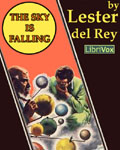 The Sky Is Falling
The Sky Is Falling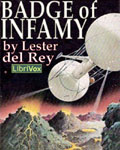 Badge Of Infamy
Badge Of Infamy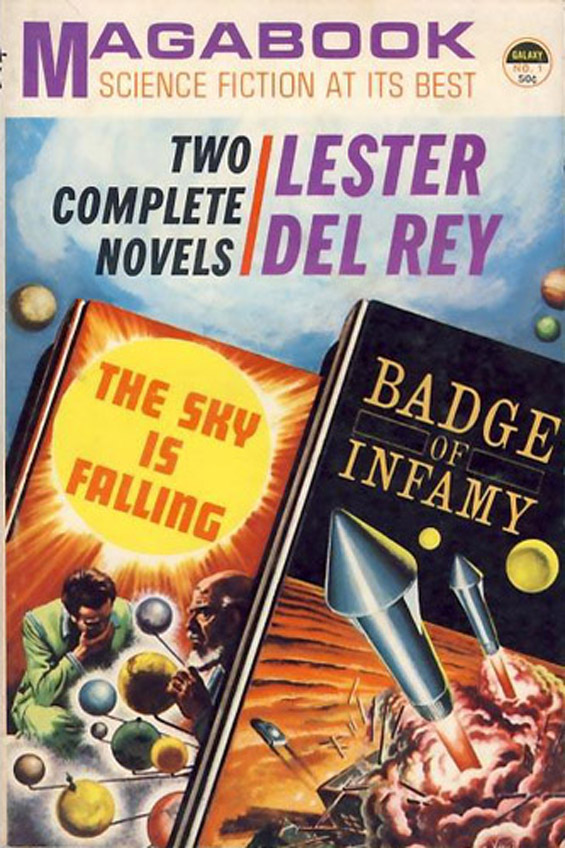
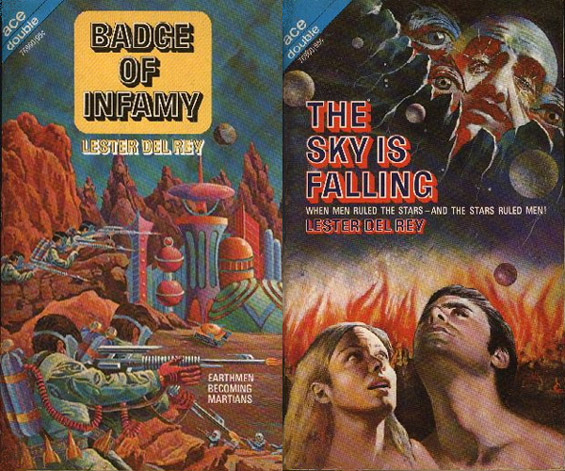

 Anathem
Anathem

